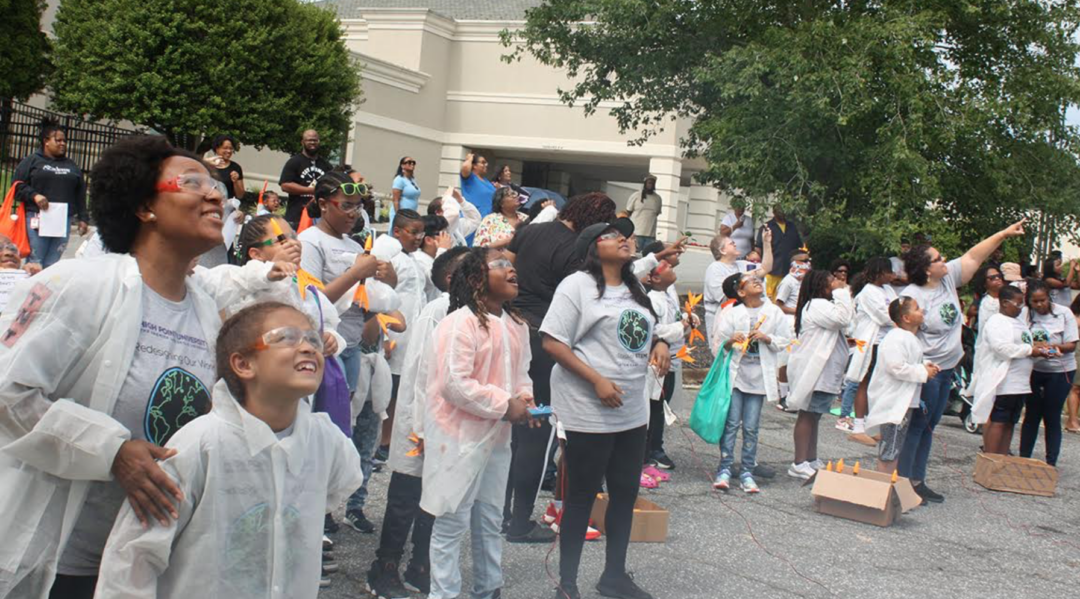In the high-tech future – if the killer AI robots let us live – the subjects of science, technology, engineering and math (known collectively as STEM) will be more important than ever for the next generation to know.
High Point University is doing its part to see that area children learn those skills. That was in evidence when the university’s Stout School of Education recently held its 10th annual STEM Camp. The camp entailed a full week of learning about science, technology, engineering and math in a way that made it fun for both the kids and the instructors.
More than 110 students from The Point-College Prep and Leadership Academy took part in the camp. Kindergarteners to sixth graders learned a lot in the week that concluded with a rocket launch.
This year’s camp had the theme of “Redesigning Our World through STEM,” so teacher residents from the Stout School of Education led the students through various learning activities that included lessons on engineering, nanotechnology, renewable energy and robotics.
The camp prides itself on providing “hands-on experiences” with STEM concepts and also on exposing the students to potential careers where those subjects come into play.
Stout School of Education professor Tina Johnson said the university had several partners to thank.
“In the era of a teacher shortage, High Point University has crafted a pathway for developing teachers for today’s public schools,” Johnson said in a prepared statement. “High Point University is grateful for the partnership of The College Preparatory and Leadership Academy, the Earl and Kathryn Congdon Foundation and the United States Department of Education. Their collective support allows us to provide this unique STEM infused experience for 112 elementary students and 19 teacher residents. A commitment to STEM education is a commitment to American ingenuity and innovation.”
The Congdon Family Foundation fund contributed more than $55,500 toward the school’s Teacher Quality Partnership grant – called PREPARE – to provide teacher residents with an “experiential learning experience” by hosting a teacher academy and STEM summer camp that included transportation for students and supplies such as those needed for studying robotics.
Shirley Disseler, adjunct professor in the Stout School of Education and STEM Camp coordinator, said teacher teamwork was another lesson learned from the experience.
“Pacing in education is everything,” Disseler said. “This has been an eye opener for thinking about the materials they need and working together in collaboration. There are new ways that science is being done and simple ways teachers can teach those concepts.”
Through the years, the STEM Camp program has allowed Guilford County Schools to have more teachers with a better understanding of STEM concepts – and the activities used at the camp often carry over into their own classrooms, Disseler said.

